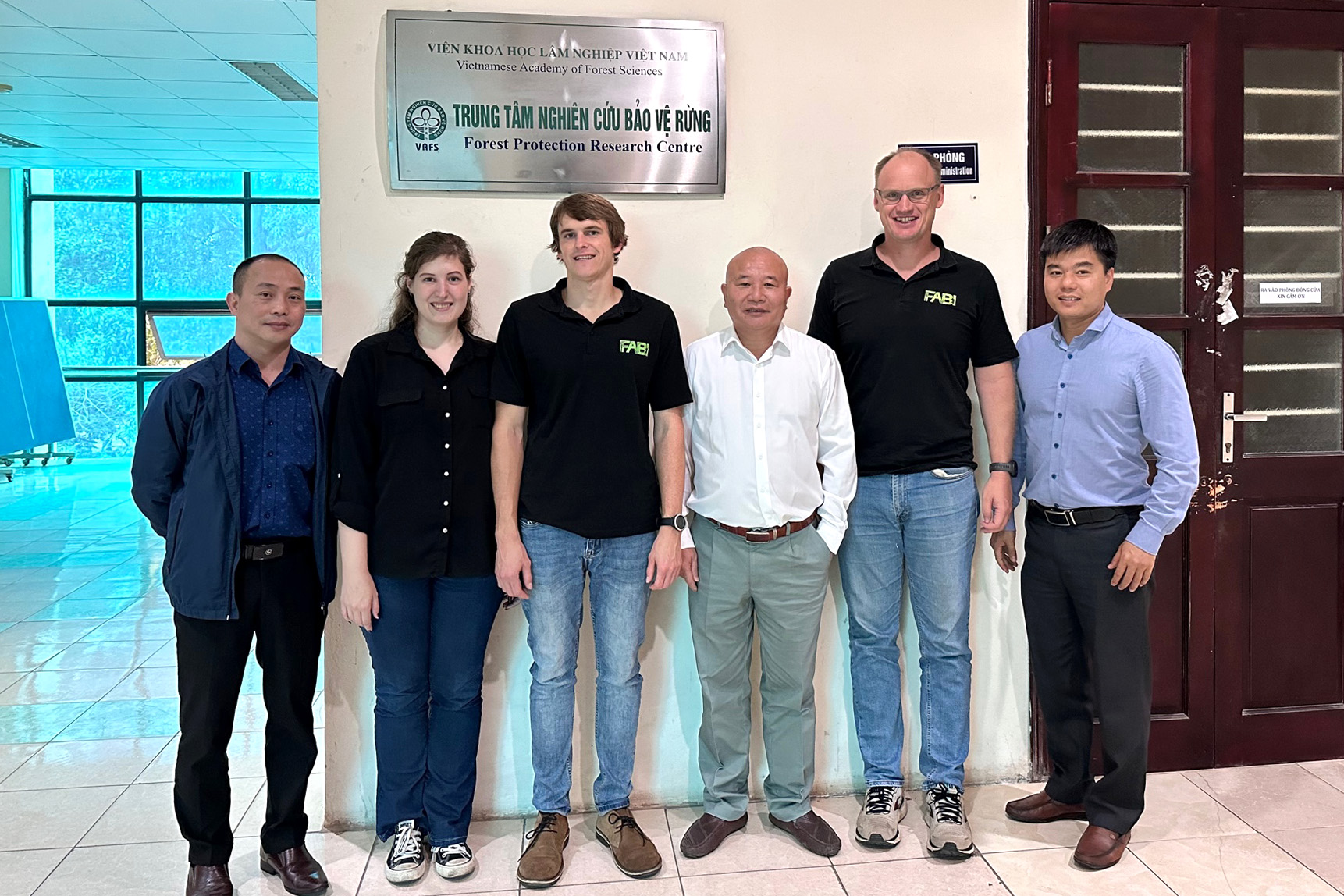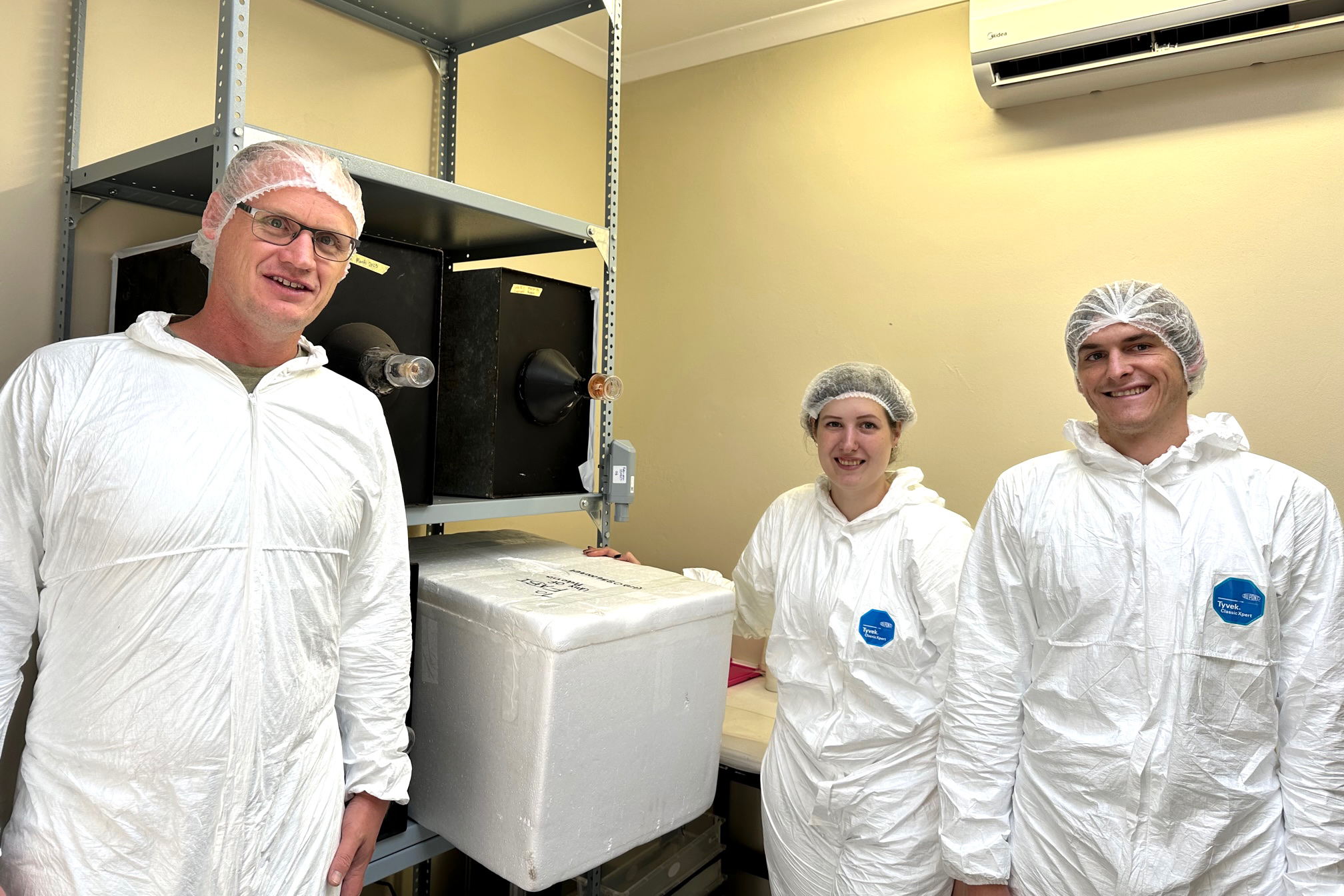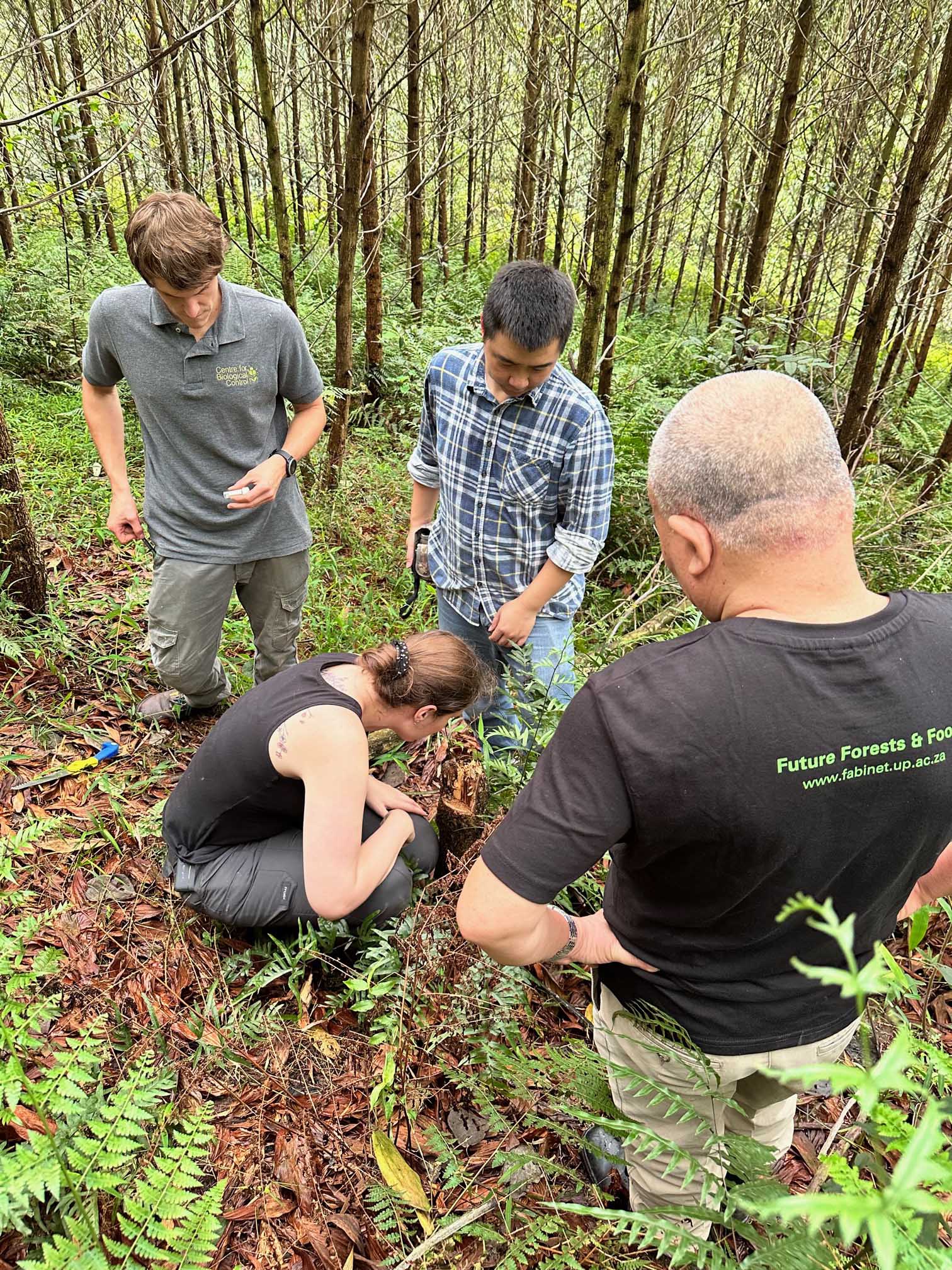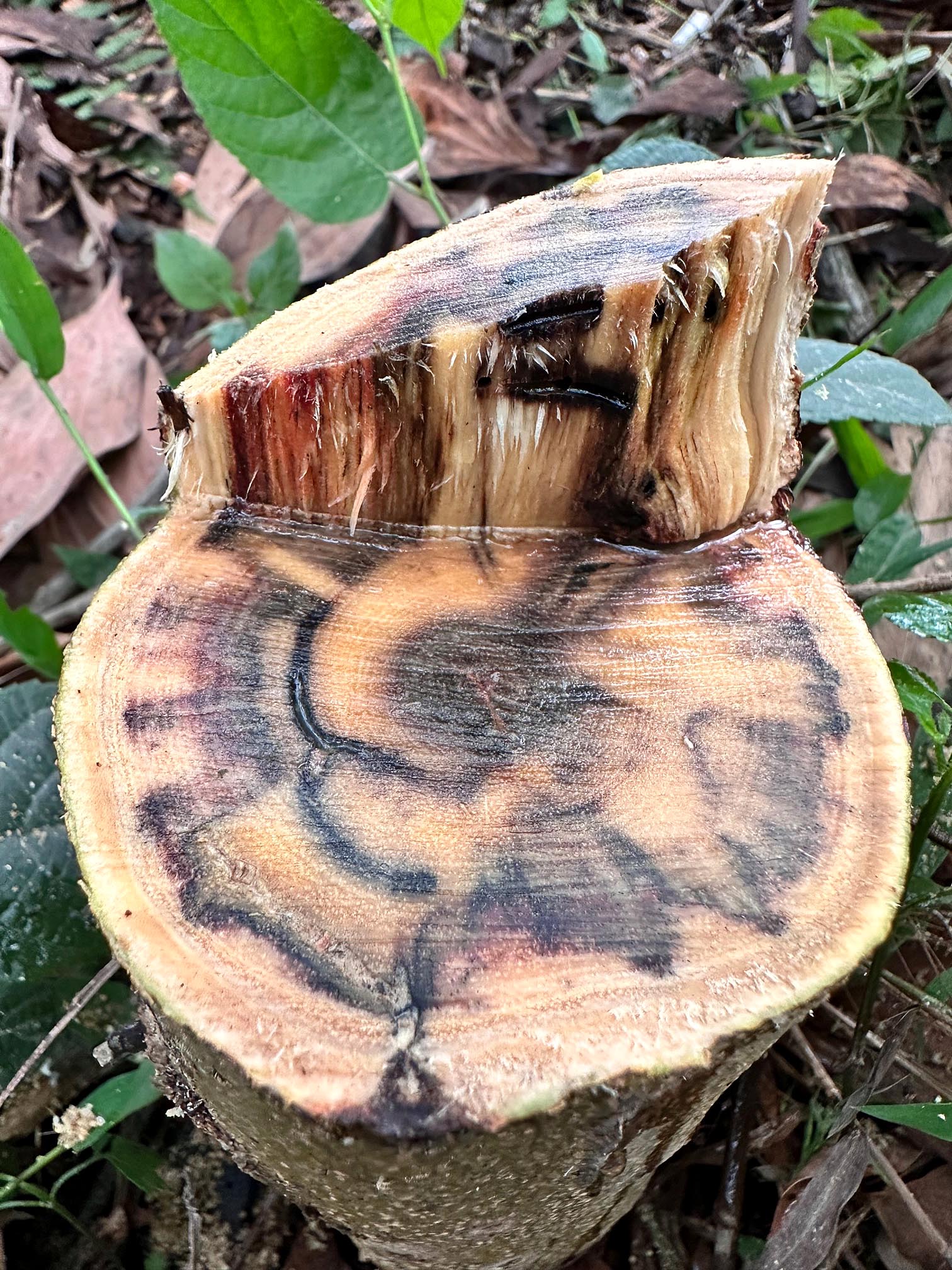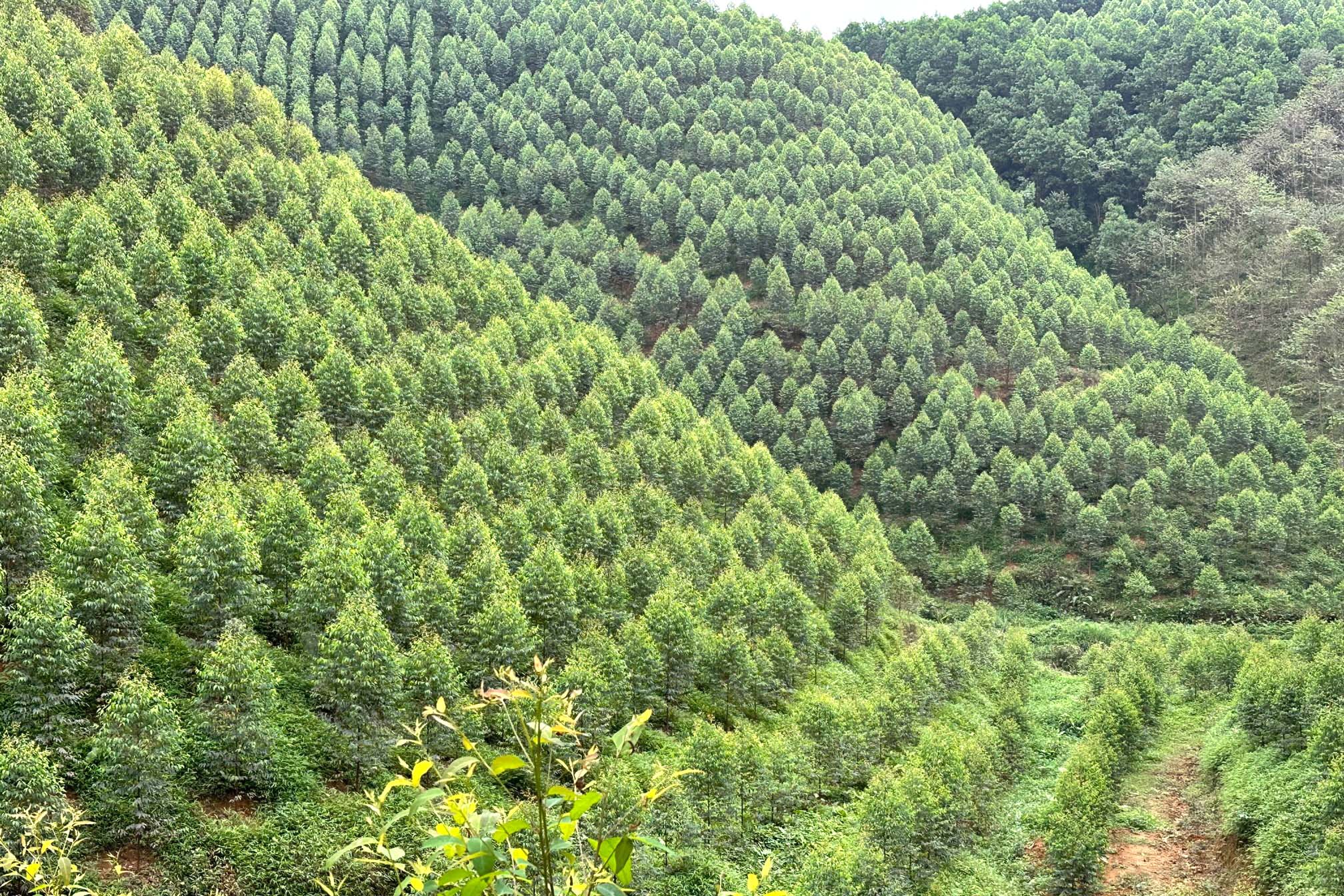FABians visit Vietnam to search for a potential biocontrol agent for PSHB 2023-04-12
Since its first report in South Africa in 2017, the Polyphagous Shot Hole Borer (PSHB), Euwallacea fornicatus has resulted in the mortality of thousands of trees in urban areas, native forests and more recently on fruit crops. PSHB is an ambrosia beetle thought to be native to Southeast Asia. It bores into the sapwood of trees and has an obligatory association with a fungus, Fusarium euwallaceae. Unlike most ambrosia beetles, PSHB infests, and often kills, seemingly healthy trees, and it also has a very broad host range. It is estimated that this invasion could cost South Africa ZAR 275 billion if it continues without control.
Biological control, by introducing natural enemies from the native range of the insect into South Africa, is one of the management options being explored by FABI. This led to the recent visit to northern Vietnam by FABians Prof. Brett Hurley, Dr Wilma Nel and PhD candidate Garyn Townsend to collect material from trees infested by PSHB with the objective of finding, identifying, rearing and testing natural enemies.
The trip was very successful and a large amount of PSHB-infested Acacia was brought back to the FABI quarantine facility, after obtaining the required permits from South Africa and Vietnam. This material will now be monitored for the emergence of natural enemies, specifically parasitoids.
This project has been made possible by the funding of the Department of Forestry, Fisheries and the Environment, and the collaboration with the Vietnamese Academy of Forestry Sciences, specifically Prof. Pham Quang Thu.


